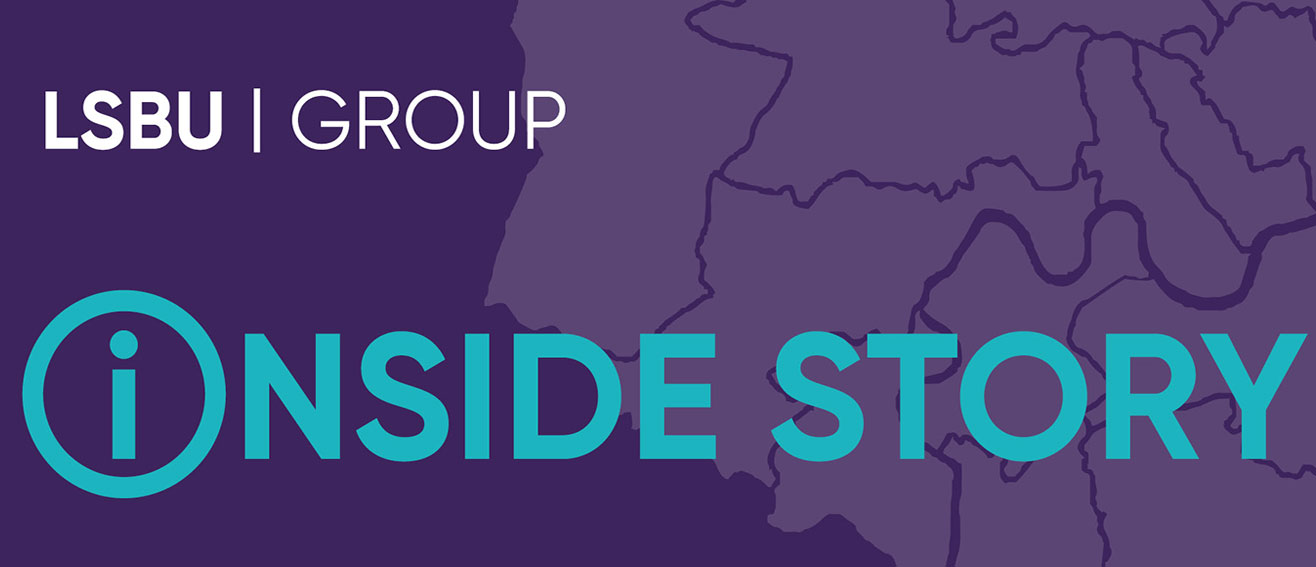
LEAP
Transforming our students' experienceLEAP: Transforming our students’ experience
LEAP is one of the university’s major transformation programmes and the LEAP vision is to ensure that all students achieve their full academic potential, by creating a student experience that is socially inclusive and focuses on their needs. We will do this by re-designing our services, processes and systems so that the whole LSBU community is engaged, empowered and accountable to deliver on thing that matter most to students.
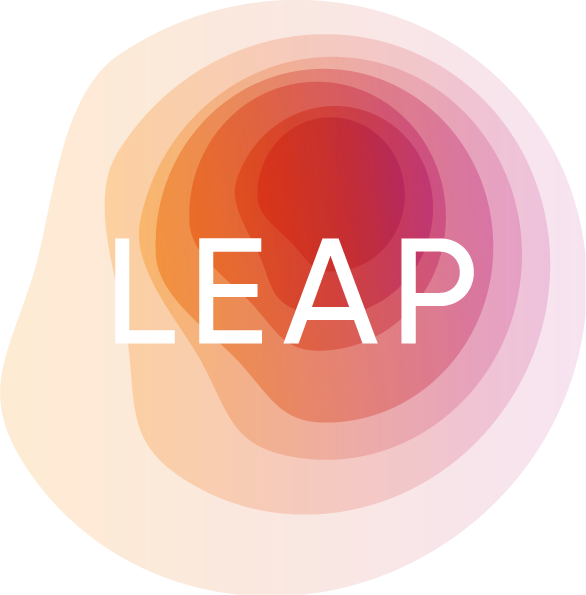
Leading the project are Richard Flatman, CFO and LEAP Programme Sponsor, Nicole Louis, Chief Customer Officer and LEAP Student Experience Sponsor, Pat Bailey, Provost and LEAP Education Sponsor, Sue Turnbull, Programme Manager and David Learmont, the Programme Director.
LEAP will seek to transform all aspects of the student journey considering every major interaction or contact point, from the initial pre-application stage, through to becoming an alum.
It's an ambitious programme that started from an idea to bring in a new student records system and it grew into something much more ambitious, once we realised how many parts of our processes and activities were connected to that system, and therefore how many areas we could improve by designing them from scratch around our students’ needs.
Our students tend to be older than those at other universities. Many of them face longer commutes, more demands on their time, financial insecurity, a lack of family support or the need to support their own families. So, we need to provide flexible individualised support when they need it.
The higher education sector is increasingly competitive, and if students don’t like their experience, they will go somewhere else. The sector is also facing financial challenges, which make it vital that we manage costs by working more efficiently.
Powered by people, supported by technology
Getting the supporting technology right is an essential part of LEAP, particularly in today’s world where digital technology, personalised content and seamless and invisible customer service are prevalent in all our day-to-day lives and those of our students. That's why we are looking carefully at the benefits that new systems and technologies will bring, for instance, a new Customer Relationship Management System (CRM) for the University – providing a powerful combination of features that will give our people the greatest scope to think and do things differently.
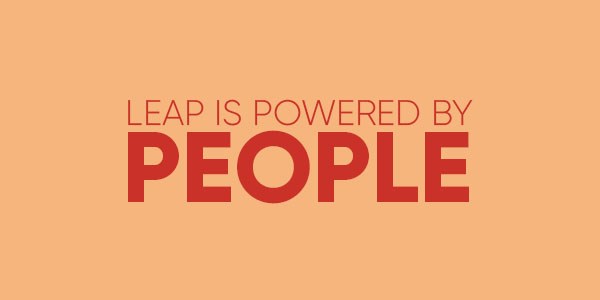 As a start point, LEAP will focus only on the University, but as we design services and processes, we’ll be considering the Group as a whole and making sure they fit with the Group strategy. And any savings through economies of scale, lessons we learn, and potentially systems could all transfer across the Group.
As a start point, LEAP will focus only on the University, but as we design services and processes, we’ll be considering the Group as a whole and making sure they fit with the Group strategy. And any savings through economies of scale, lessons we learn, and potentially systems could all transfer across the Group.
LEAP is not just about technology – it is also about how our people work and what processes are in place. This important work is starting to take shape through the Experience Accelerators. These bring staff teams together, outside of their day jobs, to collaboratively tackle longstanding pain points in the student journey.
The Accelerators map out, redesign, and create a blueprint for how we want that aspect of the student journey to work in future.
In the first Accelerator of 2019, a cross-functional staff working group collaborated to re-imagine the new student Enrolment and Welcome Week experience. The team worked hard – and in new ways – to deliver the kind of step-change that staff want to offer, and students expect to experience.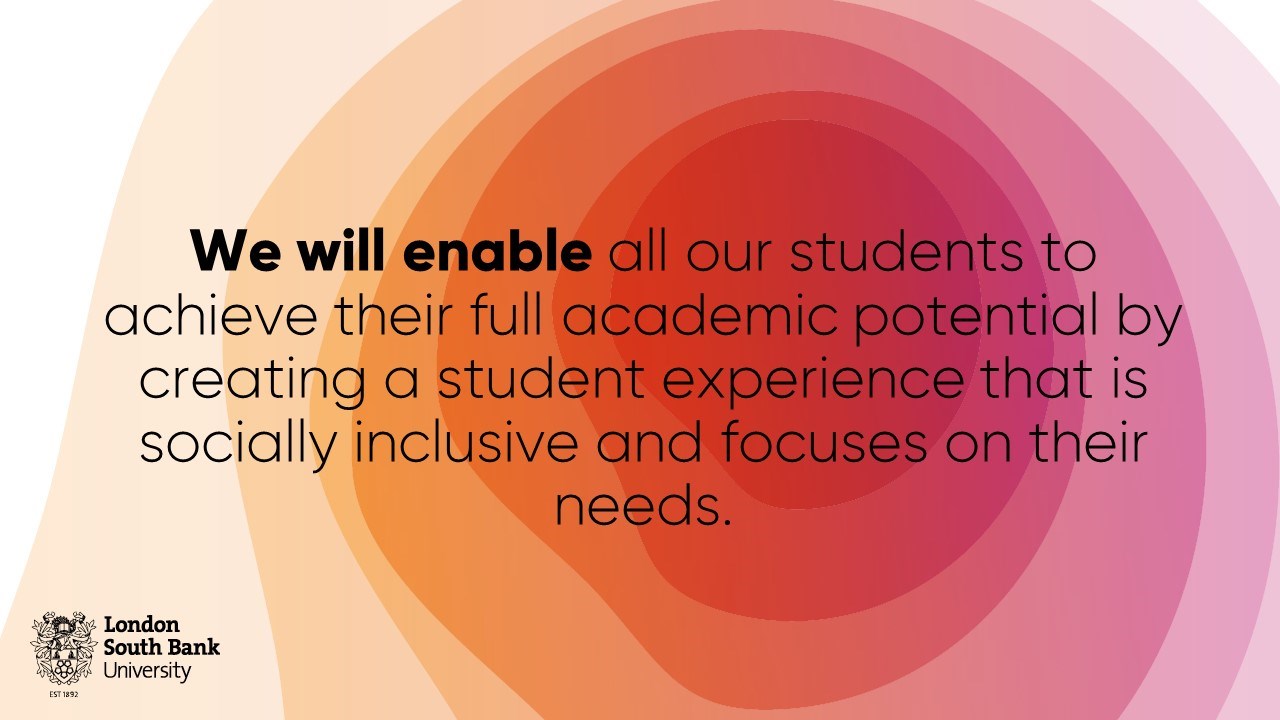
In the past, enrolment processing has overshadowed the Welcome experience. Queues of students holding paper copies of documentation for authentication was a familiar sight. It was all about form-filling, waiting and visiting various service desks.
Collaboratively, the group challenged all the existing processes and rules, and were able to create a new online enrolment concept and prototype. The new solution enables students to complete the enrolment process earlier, at their convenience, completely online. Having successfully delivered online enrolment for a pilot cohort in September 2019, we look to roll out across the University (once new technology arrives) for September 2020.
The driving idea behind the ‘new way’ was to make the administrative process-side of enrolment disappear, to allow new students in Week 0 to focus on becoming part of the University community.
The new process has some unintended advantages too:
- Improved conversion and student number forecasting earlier in the cycle
- New students achieving earlier access to student finance
- Financial savings
A learning journey
Accelerators give staff the free space to come together and openly reflect on what’s working well, generate ideas for improvements and work together to make that a reality.
People don’t often get asked ‘how would you redesign your job?’ and LEAP is a chance to do that.
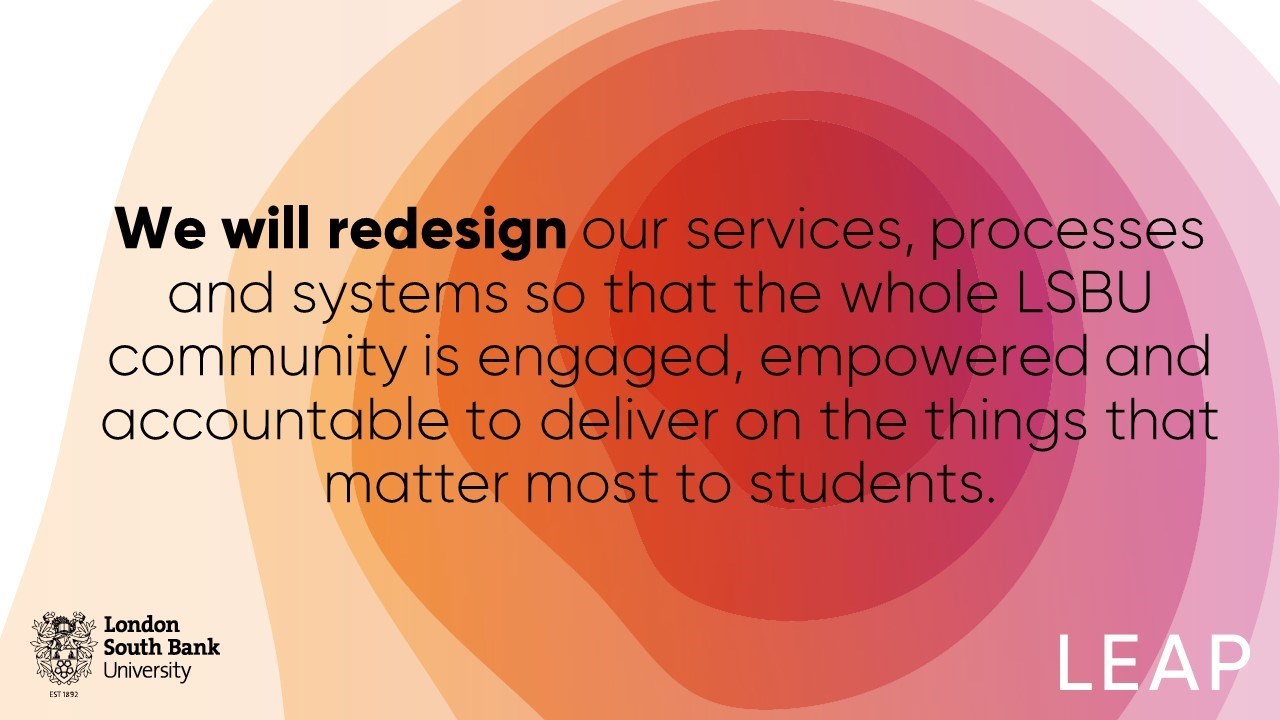
“The way that we do LEAP should reflect the kind of institution that we want to be,” said Chief Customer Officer (and LEAP Co-Sponsor) Nicole Louis. “And one of the benefits of LEAP I see is us learning how to do change better. Learning how to have a clear strategy, how to consult, how to communicate about it and how to deliver that change in the timeline we said. So, it’s something that we are organisationally learning from, we’re already beginning to upskill ourselves and our organisational capability for change.
“In short, we need to do what’s right for the student, not what’s easy for us.
“Everybody who works as part of the LSBU Group is here because they have a passion for education, and they want to see us doing the very best we can for our students. So, whether you work in the Registry function, the Marketing function, whether you work on reception, whether you work in the University, college or an academy school, if you’re motivated by doing the right thing for the students, then be open to working in new ways.”
The information in this newsletter article is intended for LSBU Group staff only. Whilst every effort has been made to ensure the accuracy of the information supplied in this article, London South Bank University cannot be held responsible for any errors or omissions.